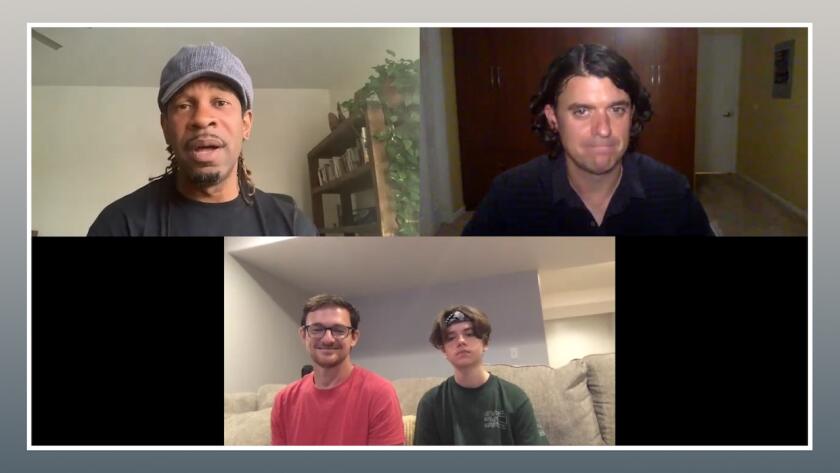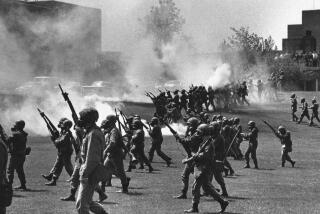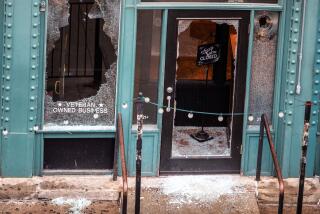Video: How three white Kenosha residents see the Jacob Blake shooting
- Share via
The seven bullets that Kenosha officers pumped into Jacob Blake is a reminder that police shootings can, and will, happen anywhere — no matter how idyllic a face that town might show to the rest of the world.
- Share via
The Kenosha I know is a charming pocket nestled on the western shore of Lake Michigan. Its downtown is a clean, walkable district peppered with mom-and-pop businesses and a few bars rich in TV-sitcom quirkiness. The picturesque Civil War Museum overlooking the water houses an extensive collection of artifacts that details the role the Great Lake states played in preserving the Union. This is also the home of my best friend, Patrick Wojtak.
Over the course of more than 20 years of friendship, we have played in basketball and tennis tournaments together, been in each other’s weddings and attended family functions. Through him and his family I got to know “Nosha,” or at least the romanticized version of it. Intellectually, I’ve always understood police shootings can, and will, happen everywhere. That doesn’t make the Jacob Blake video any less jolting.
“Not ‘Nosha” is what a mutual friend of ours posted on social media, equally jarred to learn that not even this quaint Wisconsin community of 100,000 is immune social inequities ... excessive use of force ... racism. Perhaps Kenosha isn’t quaint for everyone.
Oftentimes when national stories of this nature capture the country’s attention, we focus on urban hubs like Los Angeles, New York and Chicago. Blake — who, according to his father, is now paralyzed from the waist down — is the reminder that anywhere means everywhere.
In a wide-ranging conversation with Patrick, his 16-year-old nephew, Ian Wojtak, and older brother Rob Wojtak, we talk about the impact this summer has had on life in Kenosha, starting with the protests surrounding the death of George Floyd and culminating with last weekend’s shooting of Blake. The younger Wojtak, like many young people around the country during this time of racial reconciliation, has not only protested but helped organize protests. That’s a far cry from what his father and uncle were doing in the city when they were his age. But what was really revealing during the discussion was what has always been simmering just beneath the surface.
More to Read
Sign up for Essential California
The most important California stories and recommendations in your inbox every morning.
You may occasionally receive promotional content from the Los Angeles Times.












